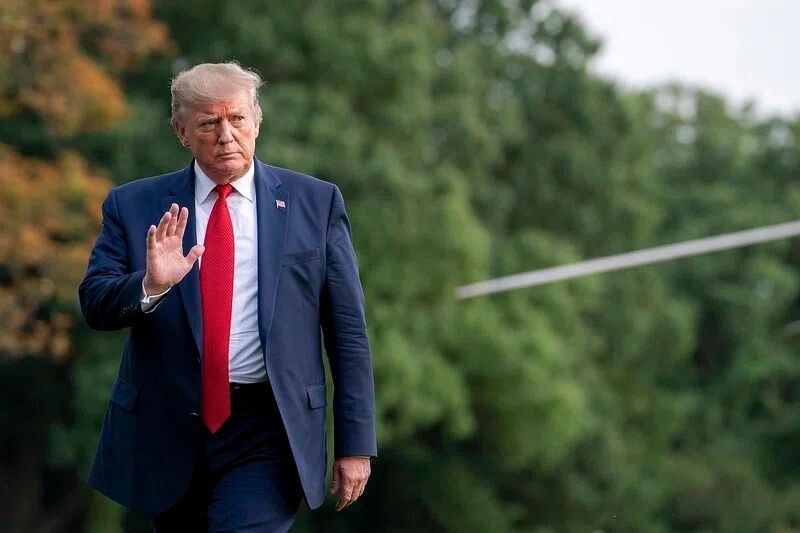Have a story idea
Have a story idea? Send it to us here.

Source : Creative Commons
December 9, 2024
Author : Alex Bustillos
With the 2024 presidential election results behind them, executives at publicly traded construction companies have begun to evaluate what the future might hold for their industry under President-elect Donald Trump’s leadership.
As the political landscape adjusts, many are cautiously optimistic, even as some uncertainties linger, particularly regarding potential tariffs on foreign goods.
In earnings calls held during the third and fourth quarters of 2024, the sentiment from executives within the construction sector appeared generally positive, despite the political upheavals that typically come with a presidential transition.
Several leaders pointed to the unique advantages they saw in a Trump presidency, especially given his background in real estate and construction.
Ronald Tutor, chairman and outgoing CEO of Tutor Perini, a heavy civil contractor based in Los Angeles, summed up the widespread optimism on November 6, the day after the election results were confirmed. Tutor noted that Trump’s direct ties to the construction industry made him a favorable figure for the sector, stating, “I’ve always considered Trump good for business, and since his background is construction, I can’t imagine him being anything but positive.”
This sentiment was echoed by international leaders, including Skanska’s CFO Pontus Winqvist. Skanska, a Swedish multinational construction and development company, is one of the many firms watching the U.S. political landscape with interest. Winqvist indicated that, under a second Trump term, lower taxes for businesses were almost a certainty, which would provide a financial boon for companies like Skanska. He also expressed confidence that infrastructure spending would continue under the new administration, a factor that could help drive the industry forward, especially in the face of competing global markets.
Some indicators do suggest new administration officials will want to cut spending on school construction. President-elect Trump has even called for closing the Department of Education.
One of the biggest uncertainties hanging over the industry is the proposed tariffs on foreign goods. These tariffs, if implemented, could have ripple effects throughout the construction sector, particularly when it comes to the cost of raw materials like steel and lumber, which are essential to building projects across the country.
However, Trump’s potential policies on tariffs have not seemed to dampen the industry’s broader optimism. Industry leaders have remained hopeful that, even with such trade challenges, the business climate under a Trump presidency would be favorable for the construction sector.
AECOM’s CEO, Troy Rudd, also weighed in on the outlook for construction under Trump, citing his optimism that the Infrastructure Investment and Jobs Act, which was a hallmark of President Biden’s administration, would likely remain intact. Despite the political changes, Rudd believes that the U.S. will continue to see substantial infrastructure investment in the coming years, especially given the bipartisan support the act has garnered. Additionally, he sees potential in permitting reforms under Trump that could address “one of the greatest bottlenecks to infrastructure investments.” This regulatory overhaul, should it happen, could expedite the construction process, removing delays that often plague major infrastructure projects.
However, the shift in political power also brings with it some risks and challenges. While construction leaders are largely positive, the cabinet appointments made by the president-elect are under close scrutiny. Among the latest appointments is Lori Chavez-DeRemer, who, along with others like TV celebrity Dr. Mehmet Oz (administrator for the U.S. Centers for Medicare and Medicaid Services) and former WWE co-founder Linda McMahon (education secretary), has sparked conversations about the potential impacts these figures could have on public policy and the construction sector.
The nomination of such high-profile personalities also highlights the potential for dramatic shifts in policy priorities, particularly in areas like labor and employment.
G. Roger King, senior labor and employment counsel for the HR Policy Association, had previously mentioned that Johnny C. Taylor Jr., president and CEO of the Society for Human Resource Management, was being considered for a cabinet seat in the U.S. Department of Labor.
How such changes affect labor laws, workforce availability, and union negotiations in the construction industry remains to be seen.
Nevertheless, the overarching narrative from industry executives remains one of cautious optimism. Industry leaders are eyeing the potential for tax cuts, regulatory reforms, and continued infrastructure spending, a mix they believe can propel the construction industry into a new era of growth.
Follow us here at Contractor News as we examine how the industry adapts to the shifting political landscape as the new administration settles in.
Category : Federal Government Investment in Infrastructure Market Watch State Government Freeways and Highways Public Works
